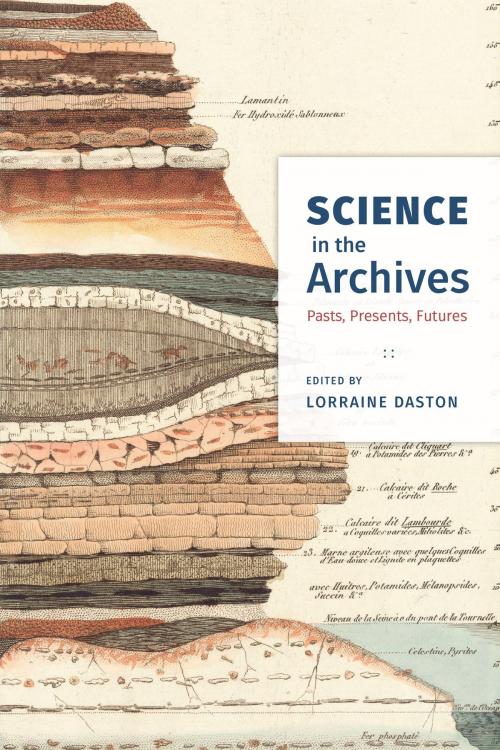Science in the Archives
Pasts, Presents, Futures
Nonfiction, Science & Nature, Science, Other Sciences, History, Technology, Engineering| Author: | ISBN: | 9780226432533 | |
| Publisher: | University of Chicago Press | Publication: | April 4, 2017 |
| Imprint: | University of Chicago Press | Language: | English |
| Author: | |
| ISBN: | 9780226432533 |
| Publisher: | University of Chicago Press |
| Publication: | April 4, 2017 |
| Imprint: | University of Chicago Press |
| Language: | English |
Archives bring to mind rooms filled with old papers and dusty artifacts. But for scientists, the detritus of the past can be a treasure trove of material vital to present and future research: fossils collected by geologists; data banks assembled by geneticists; weather diaries trawled by climate scientists; libraries visited by historians. These are the vital collections, assembled and maintained over decades, centuries, and even millennia, which define the sciences of the archives.
With Science in the Archives, Lorraine Daston and her co-authors offer the first study of the important role that these archives play in the natural and human sciences. Reaching across disciplines and centuries, contributors cover episodes in the history of astronomy, geology, genetics, philology, climatology, medicine, and more—as well as fundamental practices such as collecting, retrieval, and data mining. Chapters cover topics ranging from doxology in Greco-Roman Antiquity to NSA surveillance techniques of the twenty-first century. Thoroughly exploring the practices, politics, economics, and potential of the sciences of the archives, this volume reveals the essential historical dimension of the sciences, while also adding a much-needed long-term perspective to contemporary debates over the uses of Big Data in science.
Archives bring to mind rooms filled with old papers and dusty artifacts. But for scientists, the detritus of the past can be a treasure trove of material vital to present and future research: fossils collected by geologists; data banks assembled by geneticists; weather diaries trawled by climate scientists; libraries visited by historians. These are the vital collections, assembled and maintained over decades, centuries, and even millennia, which define the sciences of the archives.
With Science in the Archives, Lorraine Daston and her co-authors offer the first study of the important role that these archives play in the natural and human sciences. Reaching across disciplines and centuries, contributors cover episodes in the history of astronomy, geology, genetics, philology, climatology, medicine, and more—as well as fundamental practices such as collecting, retrieval, and data mining. Chapters cover topics ranging from doxology in Greco-Roman Antiquity to NSA surveillance techniques of the twenty-first century. Thoroughly exploring the practices, politics, economics, and potential of the sciences of the archives, this volume reveals the essential historical dimension of the sciences, while also adding a much-needed long-term perspective to contemporary debates over the uses of Big Data in science.















